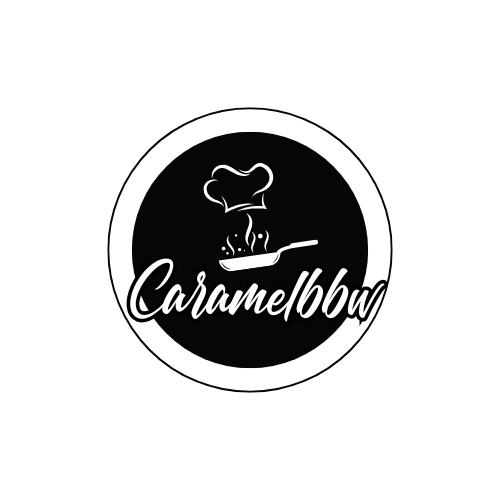
Using AI to Create Personalized Content at Scale for Marketing Campaigns
In the current fast-paced digital age, content marketing is more crucial than ever. Marketers and brands are always seeking ways to engage their audience in a more meaningful and personalized manner. With changing customer expectations, personalized content is no longer a nicety; it’s a requirement. Luckily, developments in artificial intelligence (AI) have enabled us to mass-produce personalized content efficiently and rapidly. From video production to social media updates, AI is altering the content marketing strategy of businesses.
The Age of Customized Content
Personalization has emerged as a force to be reckoned with in marketing, with numerous consumers anticipating that brands to provide content that addresses them directly in terms of their behavior, preferences, and needs. Indeed, per a study conducted by Epsilon, 80% of consumers are likely to make a purchase if brands provide personalized experiences. This change in consumer behavior has compelled companies to reevaluate their content strategies and seek means of providing relevant and personalized content at scale.
Producing customized content previously took much manual effort, with many late nights worked by content creators, designers, and strategists. AI has made this process smoother, enabling marketers to produce content that speaks to their audience in a more effective manner while also conserving time and resources.
How AI is Changing Content Creation
AI offers numerous benefits for content creators, enabling them to produce highly personalized and targeted materials quickly. Below are several ways AI is transforming content creation for marketing campaigns:
1. Automating Content Generation
AI applications are able to produce content automatically using data and user preferences. For instance, AI writing assistants are able to produce articles, product descriptions, and social media content customized for targeted audiences. AI applications use past user behavior, search patterns, and other data points to develop content that speaks to individual consumers.
Artificially intelligent content creators are particularly handy when companies want to generate a large amount of content. Rather than trust a group of writers to come up with original copy for each campaign, AI can produce articles, newsletters, and blog posts at scale, all tailored to the audience’s interests.
2. AI in Video Marketing
Video has become one of the most effective forms of content marketing, with studies showing that video content generates higher engagement rates than other content types. However, producing personalized video content can be time-consuming and resource-intensive. AI is helping marketers overcome this challenge by automating various aspects of video production.
For example, AI-based tools can create videos with customized messaging depending on user information. The tools can produce interactive video content, varying in terms of visuals, text, and voiceover based on the viewer’s interest, location, or previous interactions with the brand.
Along with video content creation, AI also assists in the optimization of video thumbnails, which are pivotal for generating clicks and engagement. By employing an AI thumbnail generator, marketers can easily create appealing thumbnails that are based on the content and interests of the viewer, increasing the probability of getting attention on channels like YouTube and social media.
3. AI-Driven Visuals for Social Media
Social media sites change constantly, and content producers have to evolve to ensure their posts remain current and interesting. Through AI, marketers are able to design highly personalized graphics and images that match the unique requirements of their audience.
AI technology can scan the behavior and tastes of users to create visuals that are more likely to appeal to them. For instance, AI can design social media advertisements, Instagram posts, and Facebook banners with customized images, text, and color combinations. These visuals can be automatically tailored for each viewer individually so that the right message reaches the right person.
In addition, AI video apps are transforming how companies produce social media video content. Through AI, these apps enable marketers to produce short-form videos for sites such as TikTok, Instagram Stories, and YouTube Shorts within a short period. AI scans trends, user interest, and behavior patterns to design videos that are not only topical but also optimized for maximum effect.
4. Increasing Personalization in Email Campaigns
Email marketing is still one of the most powerful methods of reaching customers directly. Sending generic, one-size-fits-all emails, though, tends to yield low open and click-through rates. With AI, marketers are now able to send highly targeted emails to their subscribers, boosting engagement and conversion rates.
AI software may process data, including previous email exchange history, search history, and demographic data, to customize email content based on individual recipients. This could involve generating dynamic subject lines, personalized product offerings, and personalized images depending on the interest of the receiver.
Also, AI can fine-tune send times so that emails are sent when recipients will most probably open them. By automating such processes, AI enables marketers to scale personalized email campaigns without compromising on quality.
5. Data-Driven Insights for Content Optimization
Producing customized content isn’t simply a matter of creating materials—it’s also determining how well the content performs. AI assists marketers in examining campaign data to uncover important insights about how their audience is interacting with content.
By looking at engagement statistics, AI solutions can give marketers guidance on what content is engaging particular audience groups. This enables marketers to adjust their content strategies and develop even more focused content in subsequent campaigns. AI is also capable of monitoring the customer journey and the patterns in how users behave, enabling companies to provide content at the optimal time and on the optimal platform.
Overcoming Challenges with AI in Content Marketing
Although AI has many advantages when it comes to content creation, there are a few issues to keep in mind. One of the biggest issues is making sure that AI-created content has a human touch. Personalized content works best when it sounds real, and AI-created content can sometimes sound robotic or impersonal.
To counter this problem, marketers can employ AI tools as an adjunct to human imagination, not a replacement. By integrating AI-generated content with human creativity and insights, companies can produce content that is efficient as well as engaging.
A further challenge is over-reliance on AI. Although AI may automate most aspects of content production, marketers have to continue making sure that the campaigns reflect the voice and values of their brand. Regularly checking AI-produced content is vital to make sure it reaches desired quality levels and appeals to the target audience.
Conclusion
AI is transforming content creation, enabling marketers to provide highly personalized, engaging content at scale. Through the use of AI tools for content generation automation, video creation, social media graphics, and email campaigns, companies can save time and money while providing customized experiences to their audience. AI not only assists in generating personalized content, but it also provides valuable insights to maximize campaigns and enhance future marketing efforts.
As artificial intelligence further develops, its application in content marketing will increase even more, allowing companies to engage with their audience even more deeply. Through the integration of AI into marketing campaigns, companies are able to remain ahead of competitors and provide content that actually addresses the wants of their customers.



